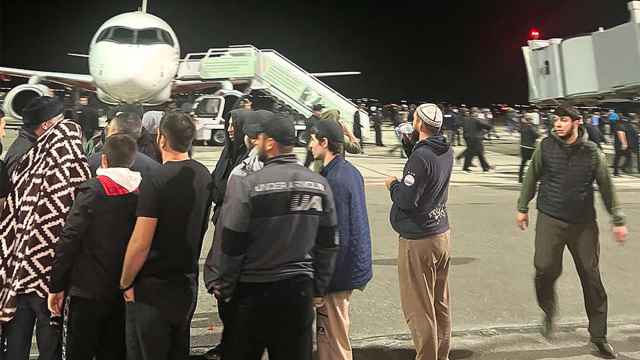TOKYO — Japan Tobacco, the world's third-largest publicly traded cigarette maker, aims to boost overseas profit at least 10 percent as a tax increase dampens demand at home.
The company plans to increase sales in countries including Russia, Yasushi Shingai, executive vice president of the JT International unit, said in an interview last week in Tokyo, where the company is based.
The cigarette maker will focus on its more profitable brands including Mild Seven and Winston, he said.
The company is targeting profit growth in Russia even as the country seeks to crack down on smoking through an advertising ban and higher taxes. Eastern Europe, including Russia, is the biggest overseas market for Japan Tobacco, accounting for 48 percent of its international unit's sales volume in 2010, the company said Feb. 7.
Earnings before interest, taxes, depreciation and amortization for Japan Tobacco's international business rose 7.7 percent in dollar terms — based on constant rates of exchange — last year after gaining 15 percent in 2009, Japan Tobacco said last week.
The company had a 37 percent market share in Russia. Japan Tobacco also aims to expand sales in the Middle East and North Africa, Shingai said.
Net income for the year ending March 31 may decline 1.8 percent to 136 billion yen ($1.6 billion), Japan Tobacco said Feb. 7. The company expects domestic cigarette sales in the 12-month period will fall 12 percent after a tax increase in October pushed up prices. The average price of 20 cigarettes rose 37 percent to 410 yen ($5) on Oct. 1, according to the Tokyo-based Tobacco Institute of Japan.
The cigarette maker bought RJR Nabisco's international businesses, including the Camel and Winston brands, in 1999 and Britain's Gallaher Group in 2007.
A Message from The Moscow Times:
Dear readers,
We are facing unprecedented challenges. Russia's Prosecutor General's Office has designated The Moscow Times as an "undesirable" organization, criminalizing our work and putting our staff at risk of prosecution. This follows our earlier unjust labeling as a "foreign agent."
These actions are direct attempts to silence independent journalism in Russia. The authorities claim our work "discredits the decisions of the Russian leadership." We see things differently: we strive to provide accurate, unbiased reporting on Russia.
We, the journalists of The Moscow Times, refuse to be silenced. But to continue our work, we need your help.
Your support, no matter how small, makes a world of difference. If you can, please support us monthly starting from just $2. It's quick to set up, and every contribution makes a significant impact.
By supporting The Moscow Times, you're defending open, independent journalism in the face of repression. Thank you for standing with us.
Remind me later.





